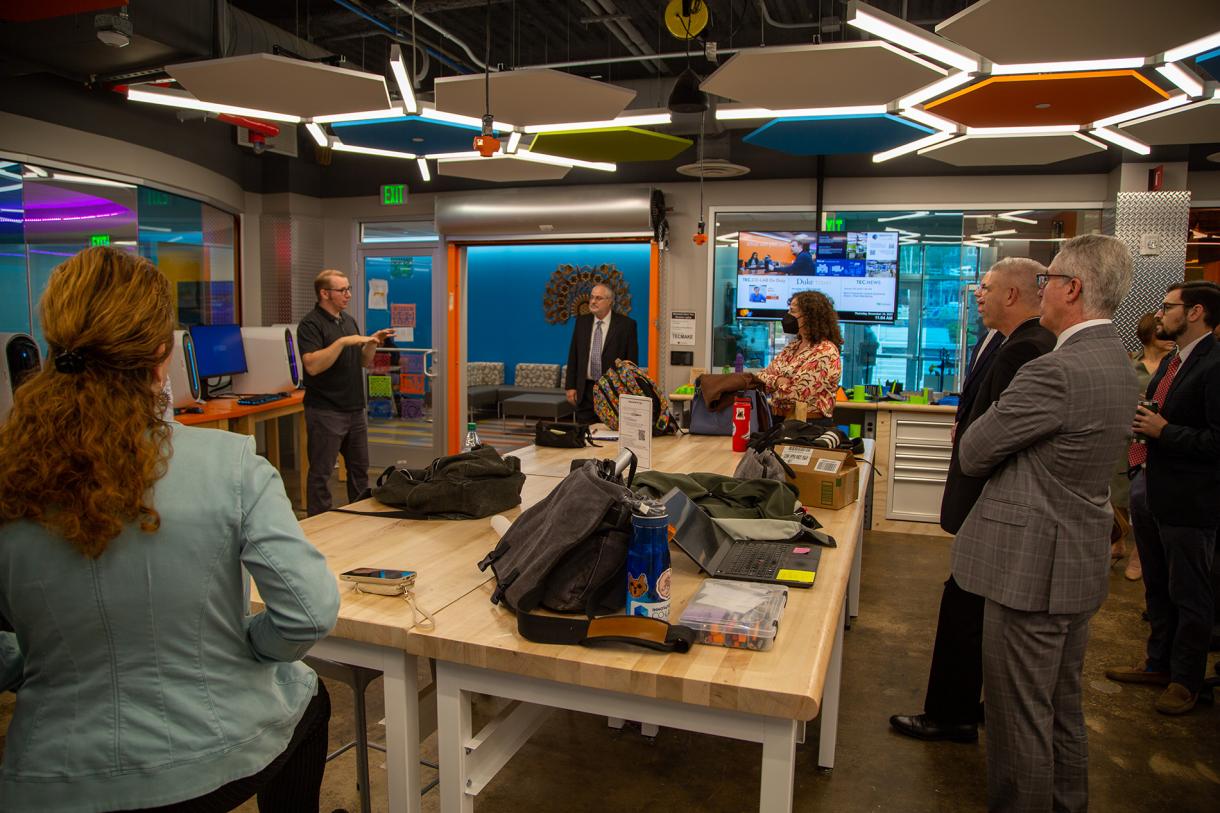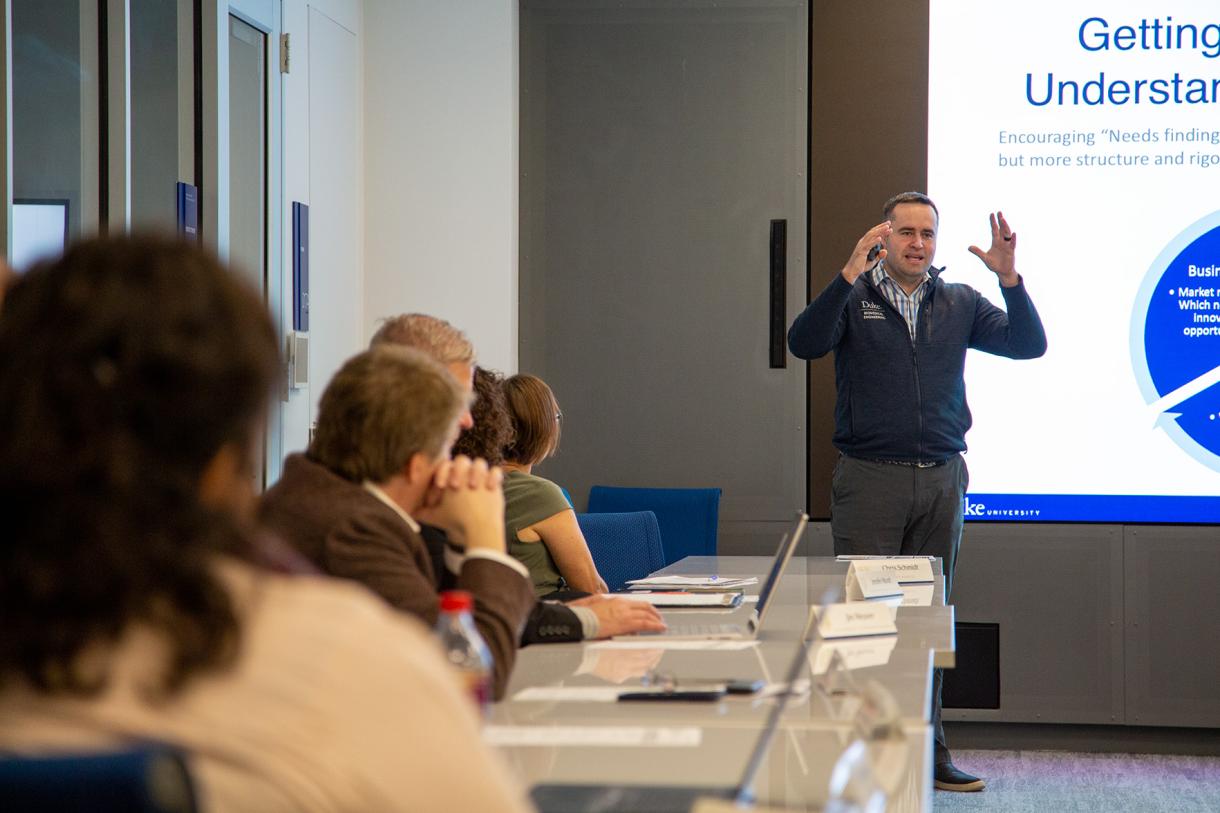

While presenting at a recent meeting of the North Carolina Board of Science, Technology & Innovation, Steve McClelland—director of the Christensen Family Center for Innovation at Duke—prompted chuckles when he shared how confused his young children had been about smart home platform Alexa and whether she was real.
“These emerging technologies and how we teach them are always changing,” he said.
With a mission of improving the economic well-being and quality of life of all North Carolinians through advancing science, technology, and innovation, the Board is focused on accelerating those emerging technologies and supporting the companies and opportunities they create—a focus shared by Duke.
“At Duke we recognize that innovation and entrepreneurship are powerful tools to improve human health and economic well-being,” said Board member Bill Walker, Mattson Family Director of Engineering Entrepreneurship at Duke. “We are eager to partner with the NC BSTI to apply our tools, resources, and people to positively impact Durham, the Triangle, and the whole of North Carolina.”
The Board works with North Carolina’s General Assembly and the Governor to build and strengthen infrastructure that keeps the state on the cutting edge of science, technology, and innovation via support for public and private organizations; programs like the One North Carolina Small Business Program, which incentivizes North Carolina businesses to apply for federal Small Business Innovation Research (SBIR) and Small Business Technology Transfer (STTR) grants and matches any funding they receive; blueprints for economic development like the Advancing Defense Innovation Report and the Pathway to Energy Innovation Leadership Report; and strategies such as the comprehensive planning effort Vision 2030. The Board also supports research projects and makes recommendations to the Governor, the General Assembly, the Secretary of Commerce, and North Carolina nonprofits regarding how to grow and develop the state’s economy via science, technology, and innovation.

With Board meetings held in rotating locations to showcase various resources and facilities for members, the Duke gathering spotlighted the Duke Engineering Design POD, the Shared Materials Instrumentation Facility, and the Innovation Co-Lab Prototyping Facility. In the meeting, Board members learned about Duke innovation initiatives, hearing an introduction by Associate Professor Eric Richardson to the Duke Design Health Program; an overview by Professor Claudia Gunsch of the Precision Microbiome Engineering Research Center; and a presentation by McClelland of the Christensen Center and its programs to support design and entrepreneurship in the Durham community.
“It was both a privilege and a significant opportunity to host the Board here at Duke,” said Walker. “We expect this meeting to generate a number of new collaborations between Duke and growing innovation-driven North Carolina businesses.”
In addition to discussing legislative priorities such as the One North Carolina Small Business Program and the Defense Innovation Initiative, and receiving updates on education, partnerships, and outreach efforts, Board members received a legislative outlook from Doug Heron, Associate Vice President of Duke State Relations, and heard from Philip Benfey, PhD, Co-Founder of GrassRoots Biotechnology, Inc., whose company was a grantee of the One NC Small Business Program.
Benfey described the transformative power of the state funding his company had received, saying it had given them runway to negotiate with partners and expand their scope of research. “I’m not just saying this just because I’m supposed to—it was huge,” he said. “If we didn’t have the money to keep going during strategic negotiations, I don’t know what would’ve happened.”
In his remarks to Board members, Vinik Dean of the Pratt School of Engineering Jerome Lynch expressed excitement regarding the many possibilities and opportunities available to innovators and researchers in North Carolina, pointing to recent legislation including the Inflation Reduction Act as well as the CHIP and Science Act, which Fuqua School of Business faculty member Ronnie Chatterji will coordinate.
“Now is the perfect time to work together as a state,” said Lynch. “North Carolina is blessed with human capital, academic capital, and industry capital that we can lean into and contribute to global success.”